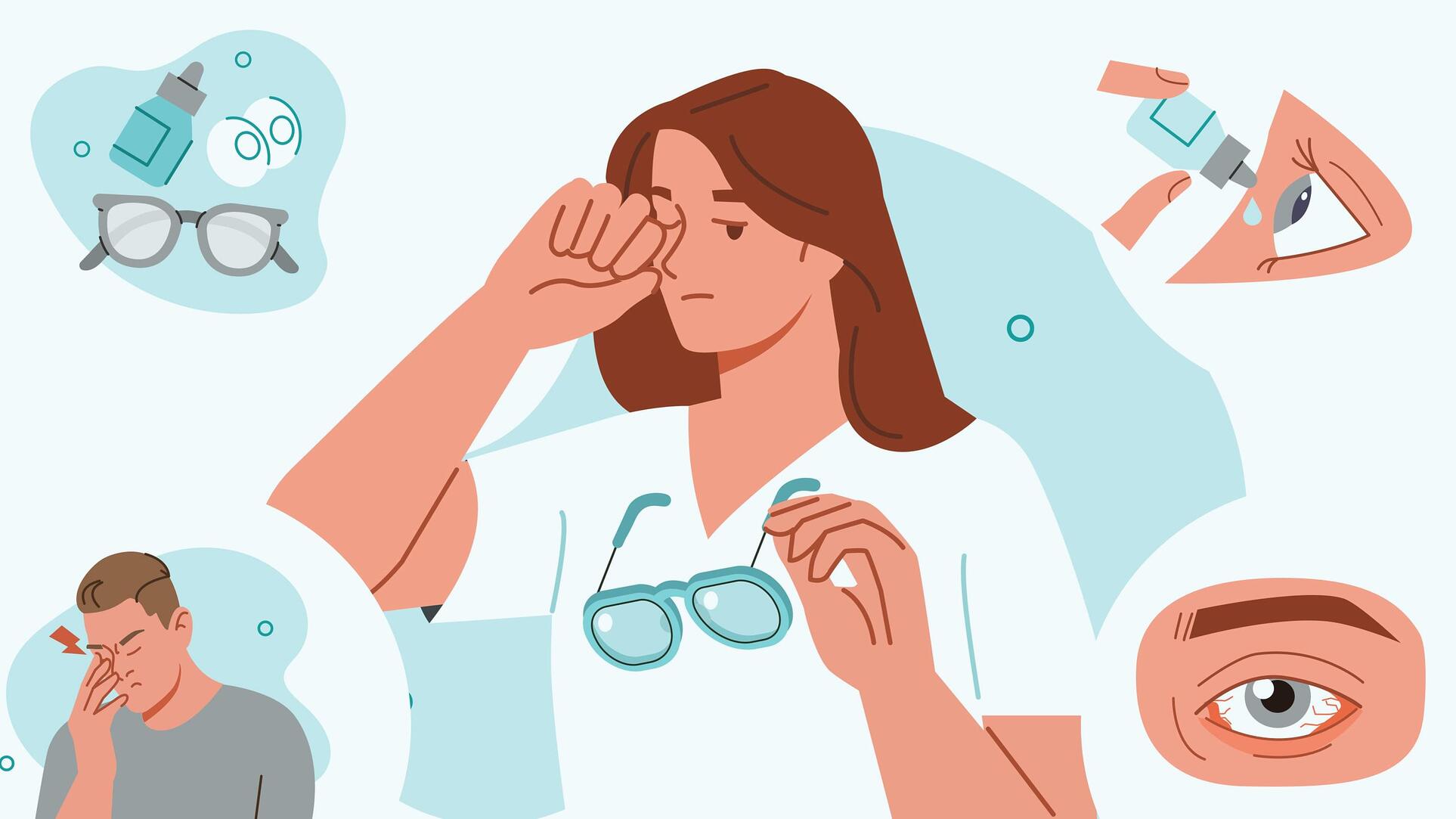
Managing Allergies and Eye Irritation
Allergies can turn even the brightest spring day into an uncomfortable experience. Sneezing, nasal congestion, and watery eyes are often the most recognizable signs of allergies, but for many, eye allergies are particularly troublesome. Whether it's seasonal allergies or reactions to dust, mold, or pet dander, your eyes are often the first to show symptoms.
Let’s take a look at how allergies affect your eyes, common symptoms, and the most effective tips to alleviate eye irritation caused by allergies.
How Allergies Affect Your Eyes
Allergies occur when your immune system overreacts to substances like pollen, pet dander, or dust. When these allergens come into contact with your eyes, they can trigger eye allergies, also known as allergic conjunctivitis. This condition causes symptoms such as:
- Itchy or irritated eyes
- Redness or swelling
- Excessive tearing
- Sensitivity to light
- A burning sensation
The main reason why allergies seem to hit your eyes so hard is that they are highly exposed to allergens in the air. When these particles settle on your eye surface, the body's immune system releases histamines, which cause blood vessels in the eyes to swell, leading to redness and eye irritation.
Why are my allergies so bad in my eyes?
Your eyes are particularly vulnerable to allergens because they are constantly exposed to the environment. Even minor exposure can cause noticeable symptoms, and when allergens like pollen or pet hair are in high concentration, the irritated eye feeling intensifies. Furthermore, allergies in the eyes are often linked with nasal congestion, making your overall discomfort worse.
Want more information on how environmental factors contribute to eye strain and irritation? Check out our blog on Eye Strain: How to Relieve & Reduce Symptoms.
Tips to Alleviate Eye Irritation from Allergies
Alleviating eye irritation caused by allergies requires a combination of prevention and treatment. Remember to always consult your eye doctor before applying anything on or in your eyes. Here are some effective strategies you can discuss with your doctor:
1. Use Artificial Tears
Artificial tears can help wash away allergens from the eye surface and provide relief from dryness. Look for preservative-free options to avoid any additional irritation.
2. Apply a Cold Compress
A cold compress can reduce swelling and offer temporary relief from eye inflammation. Simply place a clean, damp washcloth over your closed eyes for 10-15 minutes to soothe irritation.
3. Avoid Rubbing Your Eyes
Rubbing your eyes may seem like an instinctive way to ease itching, but it can actually make things worse. Rubbing increases the release of histamines, leading to more inflammation and worsening allergy eyes.
How do I stop rubbing my eyes from allergies?
To avoid rubbing your eyes, keep them lubricated with artificial tears and apply cold compresses regularly. If you catch yourself rubbing your eyes often, try using antihistamine eye drops that reduce itchiness and inflammation.
Struggling with dry eyes? Read our guide on How to Fix Dry Eyes: Symptoms & Treatment for more tips on preventing discomfort.
4. Wear Sunglasses Outdoors
Wearing sunglasses can shield your eyes from airborne allergens like pollen and dust. Wrap-around sunglasses are especially effective in preventing allergens from reaching your eyes, reducing eye allergies.
5. Keep Your Environment Allergen-Free
Control indoor allergens by frequently cleaning surfaces, using HEPA filters, and washing bedding regularly. Pet owners should keep their pets out of bedrooms and clean their living spaces to minimize exposure to pet dander.
6. Switch from Contacts to Glasses
Contact lenses can trap allergens, making symptoms worse. Opting for glasses during allergy season can act as a protective barrier, reducing your exposure to allergens.
Is it better to wear contacts or glasses with allergies?
Glasses are often better during allergy flare-ups because they protect your eyes from allergens while preventing irritation caused by contacts. If you must wear contacts, consider using daily disposables to minimize the buildup of allergens on the lenses.
Unsure which frames will suit your face? Use our Face Shape Tool to find the perfect pair of glasses that not only protect your eyes but enhance your style.
Discover Your Face ShapeCan wearing glasses help with eye allergies?
Yes! Wearing glasses can help reduce exposure to allergens by acting as a physical barrier between your eyes and airborne particles. This is especially true for wider frames or oversized styles, which cover more surface area around the eyes. Plus, wearing glasses can also remind you not to rub your eyes, helping to prevent further eye irritation.
Explore our wide range of lens options that enhance your eyewear experience, providing comfort during allergy season.
Explore Our Lenses & CoatingsWhy Yesglasses Is the Right Choice for You
Dealing with eye allergies can be frustrating, but managing them becomes easier with the right eye care solutions. Wearing glasses, particularly during allergy season, can protect your eyes and reduce eye irritation.
At Yesglasses, we offer a wide selection of stylish and comfortable eyewear designed to suit your lifestyle and enhance your vision. Whether you’re looking for prescription glasses or non-prescription blue light filtering options, we have everything you need to keep your eyes healthy and happy.
Browse our collections today and discover eyewear that meets your needs while helping to alleviate the discomfort of allergy eyes.